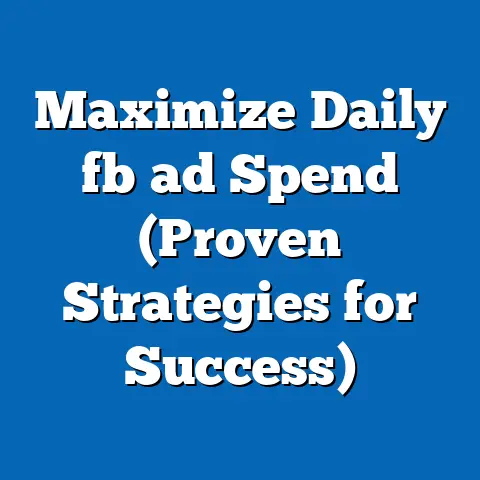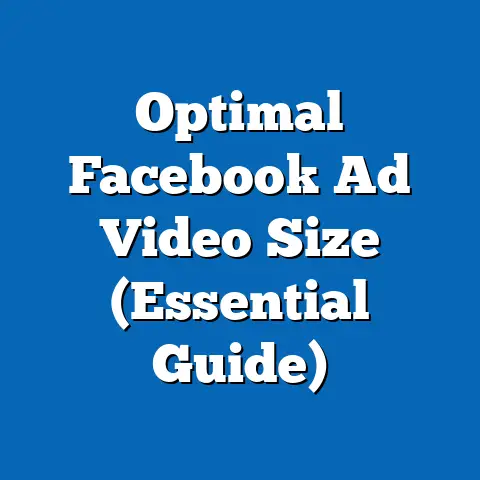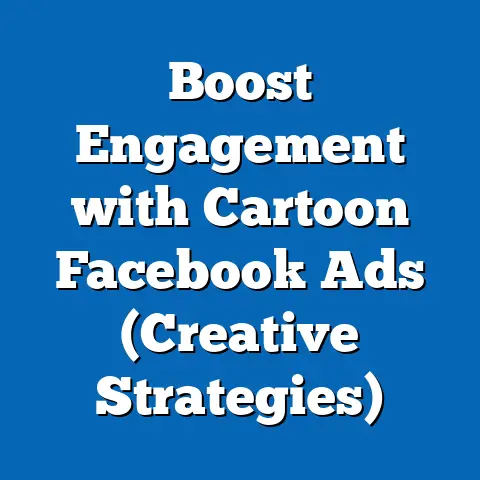Understanding Facebook Ads Manager vs. Business Manager (Essential Insights)
Why did the digital marketer bring a ladder to work?
Because they wanted to take their Facebook ad campaigns to the next level!
While the world of social media advertising might not always be a laughing matter, navigating tools like Facebook Ads Manager and Business Manager can feel like climbing a steep learning curve.
In today’s digital landscape, where businesses of all sizes rely on social media to reach their audiences, understanding the tools provided by platforms like Meta (formerly Facebook) is crucial.
Two of the most powerful tools in a marketer’s arsenal are Facebook Ads Manager and Business Manager, each designed to streamline advertising and account management.
Defining Characteristics: What Are Facebook Ads Manager and Business Manager?
Facebook Ads Manager and Business Manager serve distinct yet complementary roles within the Meta ecosystem, catering to different needs of advertisers and organizations.
Let’s break down their core purposes and features to understand their unique value propositions.
Facebook Ads Manager is the primary platform for creating, managing, and analyzing advertising campaigns on Facebook, Instagram, and other Meta-owned platforms.
It offers a user-friendly interface where individuals or small teams can design ads, set budgets, target audiences, and track performance metrics in real time.
Key features include detailed reporting tools, A/B testing capabilities, and integration with Meta’s Pixel for tracking website conversions.
In contrast, Business Manager (now often referred to as Meta Business Suite in its evolved form) is a centralized hub designed for larger organizations or agencies managing multiple accounts, pages, and ad campaigns.
It focuses on collaboration, security, and scalability, allowing businesses to assign roles and permissions to team members, manage assets like Pages and ad accounts, and oversee billing and payment methods.
Unlike Ads Manager, its primary function is organizational rather than campaign-specific, though it integrates seamlessly with Ads Manager for ad creation.
While Ads Manager is tactical, focusing on the nuts and bolts of ad execution, Business Manager is strategic, providing oversight and structure for complex operations.
Both tools are accessible for free, though their effectiveness often depends on the user’s advertising budget and technical proficiency.
Historical Context: The Evolution of Meta’s Advertising Tools
To fully appreciate the roles of Ads Manager and Business Manager, it’s essential to consider the historical context of social media advertising and Meta’s evolution as a business platform.
Understanding how these tools emerged sheds light on their purpose and ongoing development.
Facebook launched its first advertising platform in 2007 with “Flyers,” a rudimentary system allowing businesses to promote content to specific demographics.
As the platform grew, so did the complexity of its advertising needs, leading to the introduction of a more robust system in 2011—Facebook Ads Manager.
This tool was designed to give advertisers granular control over campaigns at a time when social media marketing was becoming a cornerstone of digital strategy.
By 2014, as businesses increasingly relied on Facebook for marketing, the need for a centralized management system became apparent, especially for agencies and enterprises handling multiple clients or brands.
This led to the launch of Business Manager, a platform aimed at addressing issues like account security, team collaboration, and asset management.
Its introduction marked a shift in Meta’s focus from individual advertisers to organizational scalability, reflecting broader trends in digital marketing toward professionalization and data-driven decision-making.
Over the years, both tools have evolved with Meta’s acquisitions (like Instagram) and technological advancements, incorporating features like dynamic ads, machine learning for targeting, and enhanced analytics.
The rebranding of Facebook to Meta in 2021 further signaled a pivot toward a broader vision of connectivity and commerce, with tools like Business Manager adapting to support integrations with emerging platforms like WhatsApp Business.
These developments occurred against the backdrop of significant societal shifts, including the rise of e-commerce, the gig economy, and data privacy concerns.
As businesses adapted to a digital-first world—accelerated by events like the COVID-19 pandemic—Meta’s tools became indispensable for reaching consumers where they spend much of their time: online.
Key Differences and Complementary Roles
While Ads Manager and Business Manager are often used together, their differences are critical to understanding their applications.
Let’s compare their functionalities across key dimensions.
Purpose and Scope: Ads Manager is campaign-centric, ideal for creating and optimizing individual ads or sets of campaigns.
It’s where marketers spend most of their time tweaking ad creatives, adjusting bids, and analyzing performance data.
Business Manager, on the other hand, is account-centric, serving as an administrative dashboard for managing multiple ad accounts, Pages, and team access—perfect for businesses with complex structures or agencies handling client portfolios.
User Base: Ads Manager is accessible to anyone with a Facebook account, making it suitable for solopreneurs, small businesses, or individual marketers testing the waters of paid advertising.
Business Manager targets larger entities or teams, requiring a more formal setup process and often involving multiple stakeholders.
Its design caters to the needs of marketing departments or agencies where collaboration and oversight are paramount.
Features and Tools: Ads Manager offers in-depth tools for ad creation, including audience targeting options (demographics, interests, behaviors), budget allocation, and performance tracking via dashboards.
Business Manager lacks these granular campaign tools but excels in asset management, role assignment (e.g., admin, editor, analyst), and centralized billing, ensuring transparency and control over financial operations.
Integration and Workflow: The two platforms are deeply integrated—Ads Manager can be accessed through Business Manager, allowing users to switch seamlessly between campaign execution and account oversight.
For example, a marketing team might use Business Manager to assign an ad account to a specific team member, who then uses Ads Manager to build and monitor campaigns.
This synergy ensures that operational efficiency scales with organizational complexity.
Despite these differences, both tools share a common goal: to maximize the effectiveness of Meta’s advertising ecosystem.
They reflect a broader trend in digital marketing toward specialization and collaboration, where tactical execution (Ads Manager) and strategic oversight (Business Manager) are equally vital.
Societal Implications: The Broader Impact of Meta’s Tools
The widespread adoption of tools like Ads Manager and Business Manager has far-reaching implications for society, influencing economic structures, cultural norms, and even political landscapes.
Below, we explore these impacts across several domains.
Economic Implications: These tools have democratized advertising, enabling small businesses and entrepreneurs to compete with larger corporations by offering affordable, targeted marketing solutions.
According to a 2021 Meta report, over 200 million businesses use its platforms for advertising, with many relying on Ads Manager to drive local sales.
However, this democratization also raises concerns about market saturation and rising ad costs, as competition for audience attention intensifies.
Business Manager, meanwhile, supports the growth of digital agencies and the gig economy by facilitating scalable operations.
It allows freelancers and small firms to manage multiple clients efficiently, contributing to a flexible, project-based workforce.
Yet, this reliance on digital tools also underscores economic disparities—businesses without the resources or expertise to leverage these platforms may struggle to keep pace in an increasingly online marketplace.
Cultural Shifts: The precision targeting enabled by Ads Manager has transformed how brands communicate with consumers, often blurring the line between personalization and intrusion.
Ads tailored to individual interests or behaviors can enhance user experience but also raise ethical questions about data privacy and manipulation.
High-profile events like the 2018 Cambridge Analytica scandal highlighted how Meta’s advertising tools could be misused to influence public opinion, prompting global debates on digital ethics.
Business Manager’s role in centralizing brand assets also reflects a cultural shift toward professionalized social media presence.
Companies are no longer just posting content—they’re building data-driven strategies to shape consumer perceptions, often outsourcing this work to specialized teams or agencies.
This professionalization can homogenize online content, as brands prioritize metrics over creativity, potentially stifling authentic engagement.
Political and Social Dynamics: Meta’s advertising tools have played a significant role in political campaigns and social movements, amplifying both positive and negative outcomes.
Ads Manager’s targeting capabilities allow advocacy groups to reach niche audiences with tailored messages, empowering grassroots movements.
However, these same features have been exploited for misinformation campaigns, with studies (e.g., by the Pew Research Center) showing that false political ads can spread rapidly on social platforms.
Business Manager’s administrative controls offer some mitigation by enabling organizations to monitor and restrict access to sensitive campaigns, but challenges remain.
The 2020 U.S.
election cycle saw Meta implement stricter ad policies and transparency measures, partly in response to societal pressure for accountability.
These tools, therefore, sit at the intersection of technology and governance, shaping how information—and power—flows in modern societies.
Workplace and Industry Impacts: For marketers and businesses, Ads Manager and Business Manager have redefined workflows and skill requirements.
Proficiency in these tools is now a baseline expectation in digital marketing roles, with LinkedIn data from 2022 indicating that “Facebook Advertising” is among the top in-demand skills.
Business Manager, in particular, has fostered collaborative work environments by allowing remote teams to manage campaigns collectively—a critical feature during the shift to remote work post-COVID-19.
However, the complexity of these platforms can create barriers to entry for newcomers or under-resourced teams.
The learning curve associated with mastering audience segmentation, bid strategies, and analytics often necessitates ongoing training or reliance on third-party experts, contributing to a growing industry of Meta-certified consultants and courses.
Technological and Data-Driven Factors
The functionality of Ads Manager and Business Manager is deeply tied to technological advancements and Meta’s data infrastructure.
Both tools leverage machine learning algorithms to optimize ad delivery, predict user behavior, and maximize return on investment (ROI).
For instance, Ads Manager’s “Campaign Budget Optimization” feature automatically allocates budgets to high-performing ad sets, a capability powered by real-time data analysis.
However, technological reliance also introduces vulnerabilities.
Apple’s 2021 iOS 14.5 update, which introduced App Tracking Transparency (ATT), disrupted Meta’s ability to track user data across apps, impacting the accuracy of targeting and attribution in Ads Manager.
Meta reported a potential $10 billion revenue loss in 2022 due to these changes, underscoring how external tech policies can ripple through its ecosystem.
Businesses using these tools must adapt to such shifts, often requiring pivots in strategy or investment in alternative data sources.
Business Manager’s focus on security—through features like two-factor authentication and role-based access—reflects the growing importance of data protection in a post-GDPR (General Data Protection Regulation) world.
As regulations tighten globally, Meta continues to update its tools to balance compliance with functionality, a dynamic that shapes how businesses approach digital advertising.
Nuances and Diversity in Usage
It’s important to acknowledge that not all users interact with Ads Manager and Business Manager in the same way.
Usage varies widely based on factors like business size, industry, geographic location, and technical expertise.
For small businesses or individual entrepreneurs, Ads Manager often suffices as a standalone tool, with many never needing Business Manager’s advanced features.
A 2020 survey by Hootsuite found that 60% of small business owners manage their social media ads directly through Ads Manager, valuing its simplicity and direct access.
These users may prioritize cost-effective campaigns over complex strategies, focusing on local or niche audiences.
Conversely, larger enterprises and agencies depend heavily on Business Manager to maintain control over sprawling digital assets.
For instance, a global brand with regional marketing teams might use Business Manager to ensure consistent messaging across markets while delegating campaign execution to local Ads Manager users.
This tiered approach highlights how Meta’s tools accommodate diverse operational needs.
Geographic and cultural differences also play a role.
Businesses in emerging markets, where digital literacy may vary, might face steeper adoption challenges compared to those in tech-savvy regions like North America or Europe.
Meta has attempted to address this through localized support and educational resources, such as Blueprint (now Meta Business Help Center), but disparities persist.
Forward-Looking Insights: The Future of Meta’s Advertising Tools
As we look to the future, several trends and uncertainties will likely shape the evolution of Ads Manager and Business Manager.
While precise predictions are challenging, we can anticipate directions based on current trajectories.
Technological Innovation: The rise of artificial intelligence (AI) and augmented reality (AR) within Meta’s broader vision of the “metaverse” suggests that advertising tools will become more immersive and interactive.
Ads Manager may soon support AR-driven ad formats, while Business Manager could integrate virtual collaboration spaces for teams.
However, the pace of adoption will depend on infrastructure development and consumer readiness for such technologies.
Privacy and Regulation: Ongoing debates around data privacy will continue to influence how these tools operate.
Stricter regulations, like the EU’s Digital Markets Act, could force Meta to limit data collection further, potentially reducing the precision of Ads Manager’s targeting.
Businesses will need to pivot toward first-party data strategies or contextual advertising, areas where Meta is already investing.
Economic and Competitive Pressures: As competition in the digital ad space intensifies—with platforms like TikTok and Google vying for market share—Meta may enhance its tools to retain users.
Features like simplified automation for small businesses or advanced analytics for enterprises could emerge, though rising ad costs might squeeze smaller players.
Societal Expectations: Growing consumer awareness of digital ethics will pressure Meta to prioritize transparency and user control in its advertising ecosystem.
Tools like Business Manager could evolve to offer more robust auditing features, ensuring accountability in how ads are created and targeted.
Balancing profitability with social responsibility will remain a key challenge.
Conclusion: Navigating the Digital Advertising Landscape
Facebook Ads Manager and Business Manager are indispensable tools in the modern marketer’s toolkit, each addressing distinct needs within the complex world of digital advertising.
Ads Manager empowers users with granular control over campaigns, while Business Manager provides the structure needed for scalability and collaboration.
Together, they reflect Meta’s dual focus on accessibility and professionalism, catering to a wide spectrum of users from solo entrepreneurs to global enterprises.
Their historical development mirrors broader shifts in technology, commerce, and society, from the early days of social media marketing to today’s data-driven, privacy-conscious landscape.
Their societal implications—spanning economic opportunity, cultural influence, and political dynamics—underscore the profound role of digital tools in shaping our world.
As we move forward, the interplay of innovation, regulation, and societal expectations will continue to redefine these platforms.
Marketers and businesses must stay agile, leveraging the strengths of both Ads Manager and Business Manager while adapting to an ever-changing environment.
While the future holds uncertainties, one thing is clear: understanding and mastering these tools will remain essential for anyone looking to make an impact in the digital realm.






